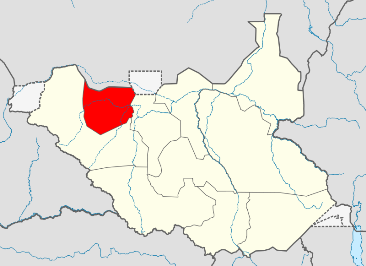S. Sudan: Conflict affecting food security in “stable” states
March 30, 2017 (AWEIL) – The ongoing conflict in South Sudan is affecting food security in some of the country’s more “stable states,” the head of the U.N peacekeeping in South Sudan (UNMISS), said.

“It is imperative that fighting stops, so the citizens of the world’s newest nation can live in peace and enjoy the benefits of independence,” he added.
Shearer was speaking during a visit to Aweil, north of South Sudan, where he heard from U.N humanitarian agencies working in the region on how many families had migrated to neighbouring Sudan.
Last month, three U.N agencies and the government declared an outbreak of famine in parts of war-torn South Sudan, with additional one million people reportedly at the verge of facing starvation.
The Governor of Aweil State, Ronald Ruay Deng, said his administration was doing all it could to move people from dependency on emergency food aid to a more resilient rural agricultural” model of production, including the piloting of a new community farming approach to feed the most vulnerable people.
During the visit, Shearer was also briefed about the efforts under way to build peaceful understanding between communities, particularly pastoral communities who arrive on a seasonal basis from Sudan to share water and grazing land with the residents of greater Aweil.
As such, the U.N mission in the country is reportedly facilitating improved inter-communal understanding through dialogue, an initiative supported by Aweil East Governor, Deng Deng Akeui.
“I fear for the immediate future of the people here particularly their ability to cope during the imminent rainy season while their crops are growing,” Shearer said in relation to the food insecurity in the area.
He added, “However, I am optimistic that building a good relationship between the local authorities, United Nations agencies and non-governmental organizations, will enable us to tackle the food security challenge.”
Tens of thousands of people have been killed and nearly two million displaced in South Sudan’s worst violence outbreak since July 2011.
(ST)
